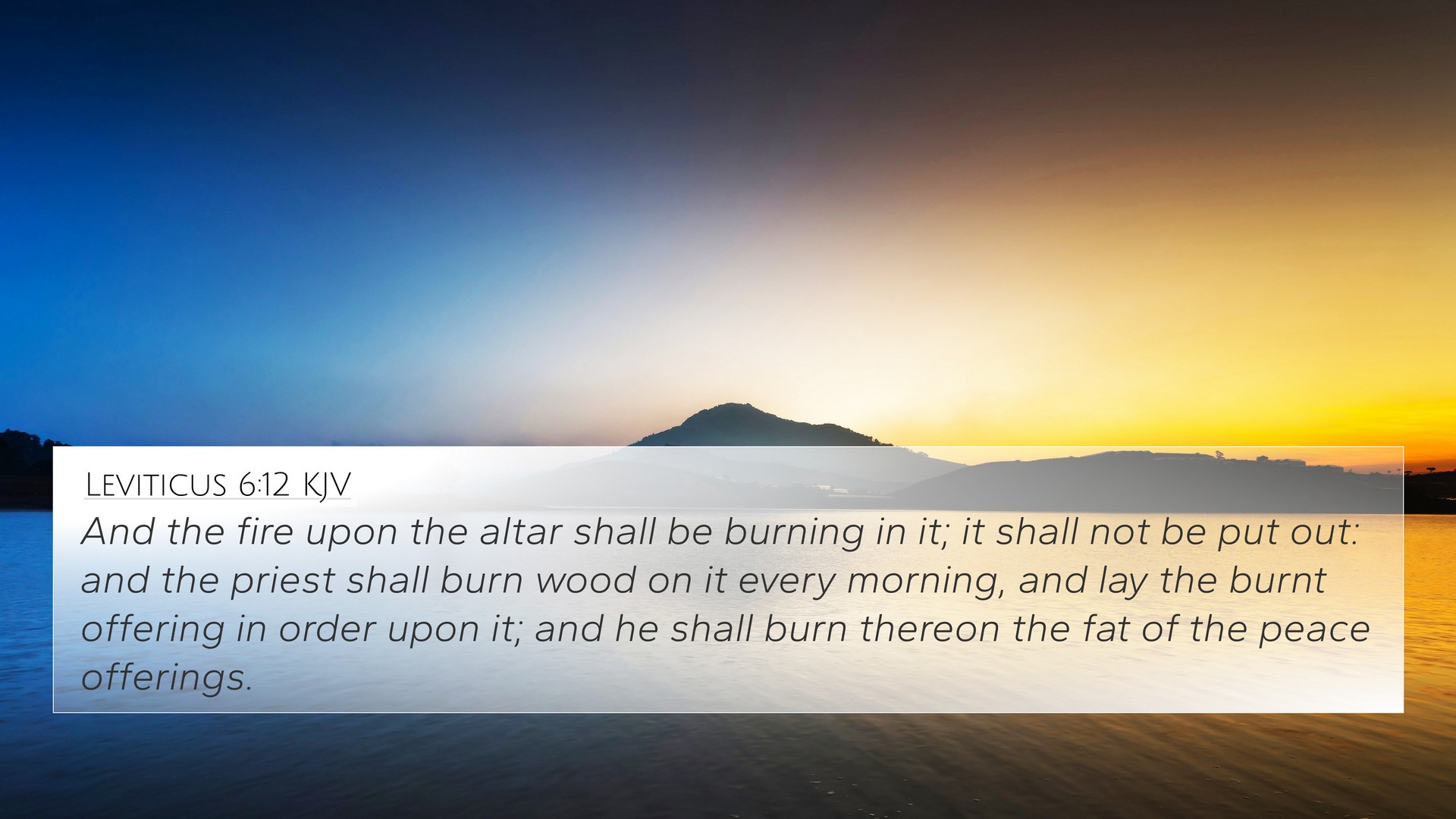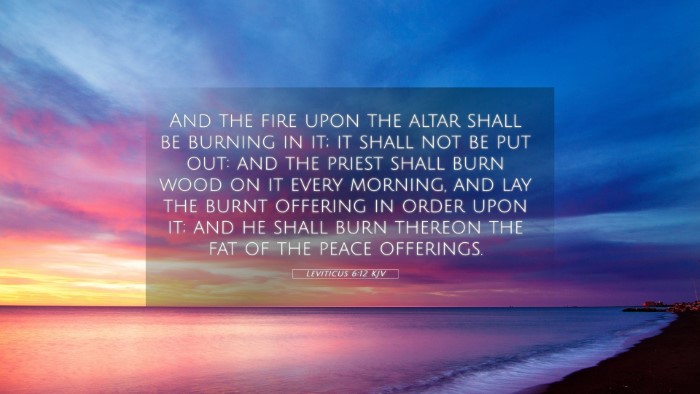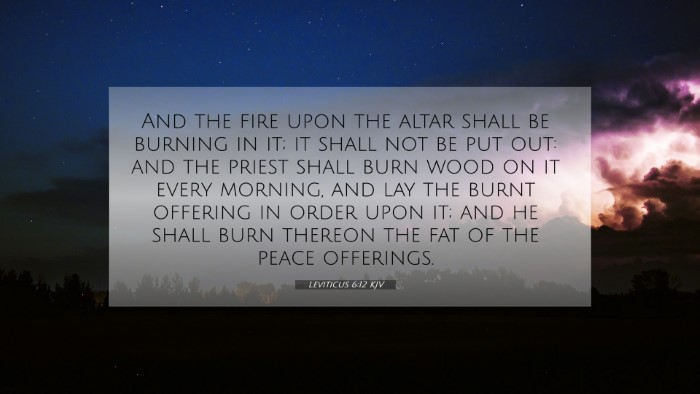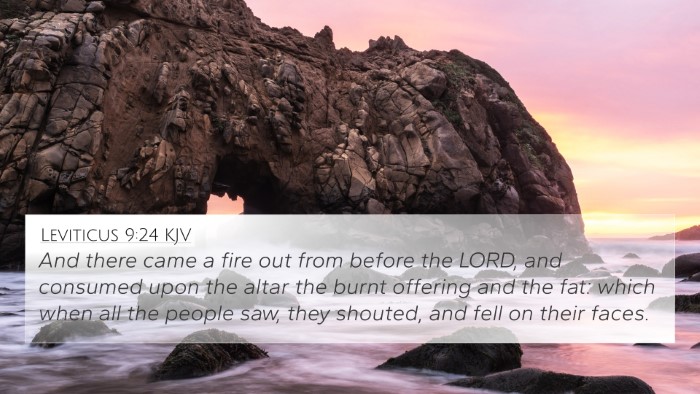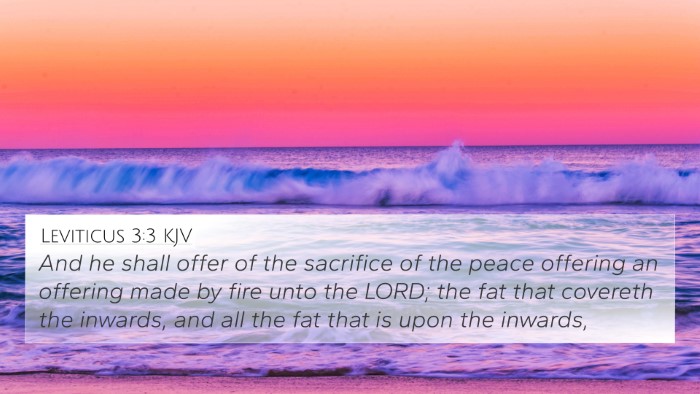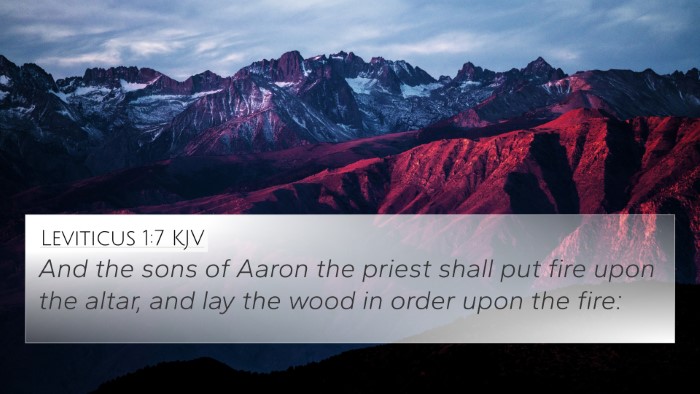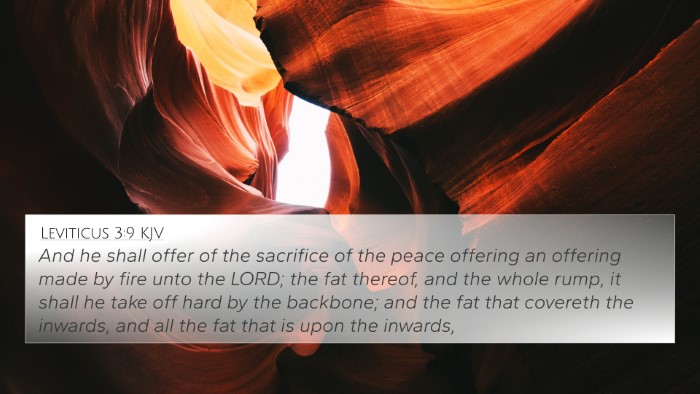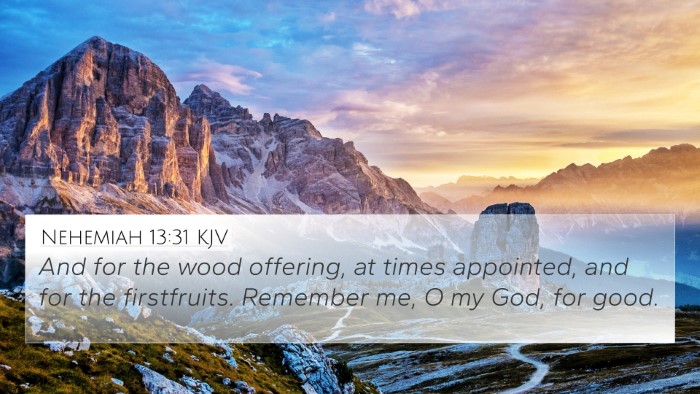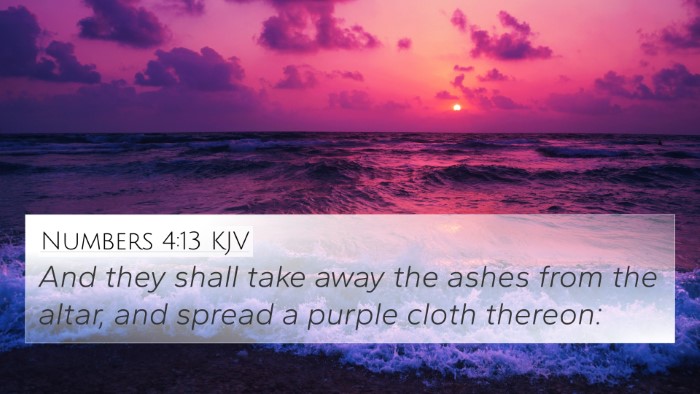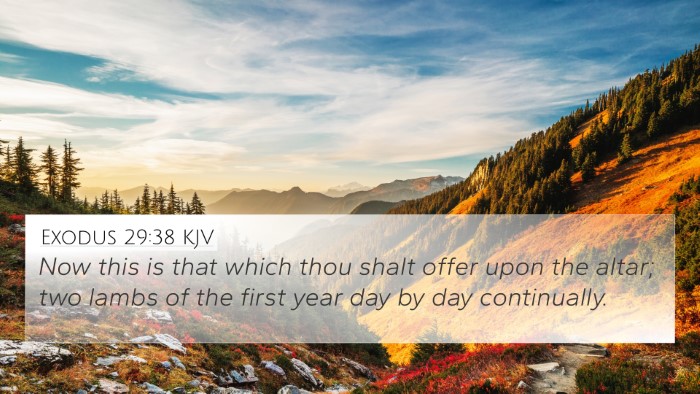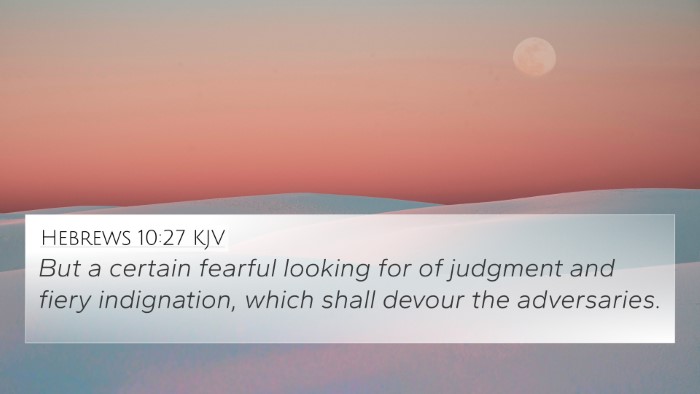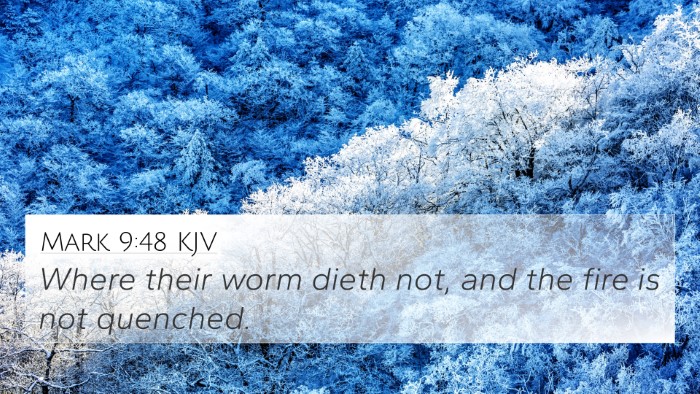Understanding Leviticus 6:12
Leviticus 6:12 states: "And the fire on the altar shall be kept burning on it; it shall not be put out. And the priest shall burn wood on it every morning, and lay the burnt offering in order on it; and he shall burn on it the fat of the peace offerings."
Meaning and Interpretation
This verse illustrates the importance of maintaining the divine order of sacrificial worship. The continual burning of the fire signifies God's enduring presence and acceptance, while the duties of the priests emphasize their role in mediating the relationship between God and His people.
Key Insights
- Fire as a Symbol: The fire represents God's holiness; it must not go out, symbolizing the consistent offering of worship and the ongoing relationship between God and His followers.
- Priestly Duties: The instructions regarding the priests’ responsibilities highlight the importance of dedication in spiritual service, illustrating the principle of serving God with vigilance and commitment.
- Daily Sacrifice: The mention of daily offerings signifies the need for continuous devotion and reminds believers of their daily commitment to God.
- Peace Offerings: This ties to the broader concept of fellowship with God, where the offerings represent gratitude and acknowledgment of God’s provision.
Cross-References
- Exodus 30:7-8: Details on the duties of the priesthood regarding the altar.
- Leviticus 1:7: Discusses the role of the fire in burnt offerings.
- Leviticus 3:16: Highlights the significance of the fat in peace offerings.
- Numbers 28:3-4: Establishes the routine of daily sacrifices and offerings.
- 1 Chronicles 16:40: Reinforces the ongoing importance of worship before the altar of the Lord.
- 2 Chronicles 13:11: Speaks of continual offerings made to the Lord by priests.
- Hebrews 10:19-22: Connects Old Testament sacrifices to the New Covenant, emphasizing faith and access to God.
Thematic Connections
The themes found in Leviticus 6:12 connect with various Bible verses that discuss the idea of continuous worship and the unceasing relationship between God and humanity.
- Romans 12:1: Presenting ourselves as living sacrifices aligns with the continual sacrifices in Leviticus.
- 1 Thessalonians 5:16-18: Encourages continuous joy and prayerful attitude, reflective of ongoing worship.
Tools for Bible Cross-Referencing
For those who wish to delve deeper into the connections between Bible verses, various tools for Bible cross-referencing can enhance their study:
- Bible concordance
- Bible cross-reference guide
- Comprehensive Bible cross-reference materials
How to Use Bible Cross-References
To effectively utilize Bible cross-references:
- Identify main themes in the scripture you study.
- Use a Bible concordance or software to find related verses.
- Conduct comparative Bible verse analysis to see connections and parallels.
Conclusion
Leviticus 6:12 emphasizes the importance of continual worship and the priesthood's role in maintaining this sacred practice. Through understanding this verse's meaning, believers can appreciate the ongoing dialogue between God and their spiritual duties.
